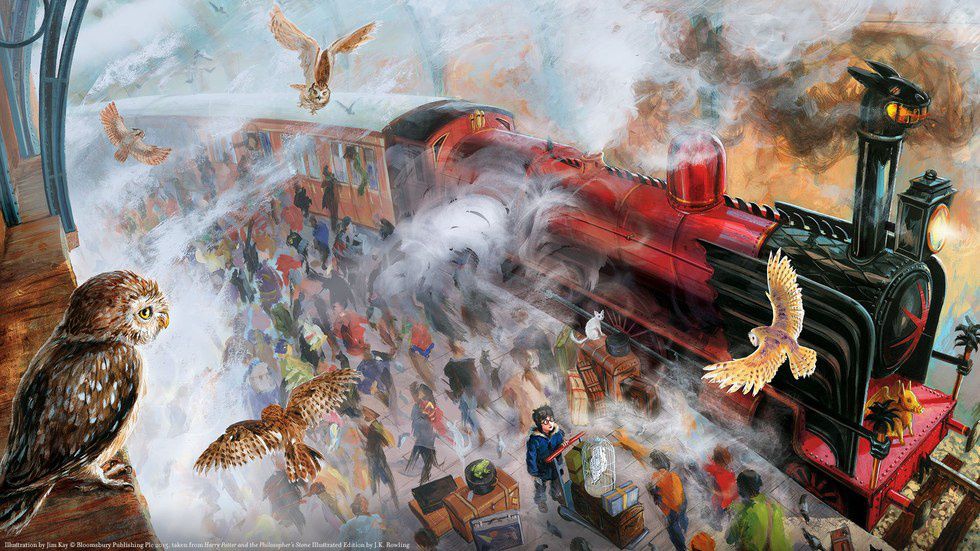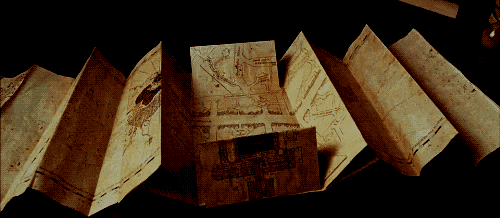On June 26, 1997, Harry Potter And The Philosopher's Stone was published, and a book about an 11-year-old boy going to a school to learn magic quickly became a household name. Over the next 10 years, J.K. Rowling wrote six other books, and on July 21, 2007, Harry Potter And The Deathly Hallows, was published to record sales and ending the series on a fantastic note....or so we thought. In 2016, the play Harry Potter And The Cursed Child was announced. The script was made available and was the most preordered book of 2016. However, while the play was positively received, the script.....not so much, leading to a divisive response and many people wondering if this was needed at all.
A month and a half ago, I myself had taken to YouTube to talk about this novel. 3000+ views later, and many of us seem to be coming back to the same conclusion: the book was just not that great. However, for all intents and purposes, 2016 is still proving to be the resurgence year of the franchise, with Cursed Child out now and the spin-off film Fantastic Beasts And Where To Find Them, starring Eddie Redmayne, releasing this November. It's apparent by now that the franchise still has a powerful fan base, despite some of its low points. It begs the question: why do people love Harry Potter?
The movies do have a big role to play in this. Since 2001, the movies have become more--if not equally--as popular as the books, with each movie grossing millions of dollars and breaking box office records on opening weekends and shattering DVD/Blu-Ray sales charts. The final movie, Harry Potter And The Deathly Hallows Part 2, was the highest grossing film of 2011, grossing $1.32 Billion and getting multiple Oscar nominations (the latter applying to most of the movies).
In my opinion, people love the series because it connects so incredibly well with the younger generation in different ways. As I write this article, I am also editing a review for Harry Potter And The Order Of The Phoenix, which is a movie that many like and many don't. Personally, it's my least favorite of the franchise, but that doesn't make it bad. Least favorite is still amazing.
There is just so much to love in this series. We all want to be wizards, fly on broomsticks, perform magic and have friends like Ron and Hermione. Something I noticed while talking about Order Of The Phoenix was how the story also made parallel to thoughts almost every 15-year-old has. In this story, Harry's mind is connected to Voldemort's and he sees visions of people in his life being harmed and killed. In real life, there are some who would look at this and connect to Post Traumatic Stress Disorder. Now I'm not saying that PTSD is common amongst teenagers, but the anxiety and stress he feels on himself in the story is something we can relate to as teenagers. Furthermore, this is the first time in the series Harry kisses a girl, and in the book, there's even a slightly extended discussion between Harry, Ron and Hermione about the first kiss and how it felt, a discussion which I'm almost certain everyone's had with their friends after it happened. Always gets awkward with the parents, though.
However, you're reading this article late. This was supposed to be out a week ago. At this point, my review for Harry Potter And The Half-Blood Prince is already up on YouTube.
So let's talk about how that story has parallels to real life as well. This, in essence, carries forward what Order Of The Phoenix was doing to more mature levels, which makes it interesting. It talks about relationships, growing up, what we want in our lives and the lengths we are prepared to go to to achieve them. It even has interesting commentary on how people react to things in our lives, by giving backhanded comments to new developments in social circles and even having a slightly sarcastic tone to the whole thing, keeping it humorous as well, like Hermione fussing over Ron being with a girl named Lavender who is completely infatuated with him. In one segment of the story, Ron eats chocolates meant for Harry which contain a Love Potion, which would make Harry fall in love with the girl that sent them. You know, as you do.
The series also connects with people in a manner that's rather simple: it brings our dreams to life. As I mentioned earlier, characters can fly, travel great distances in a second, owls as pets that love you, kind adult folk like Hagrid and Dumbledore and people who are totally okay with you dating their younger siblings. Thanks to Harry Potter, there are now three generations (and hopefully counting) of children and adults who are in love with the franchise and enjoy it. The series lets you live your dreams and thanks to the movies, you get to see them come to life on screen. There are several shots in the movies where characters are flying and the shot is from a first-person perspective, which makes the feeling of you flying even more realistic at times.
The movies do something that the books did, but at times, even better: make the characters even more relatable by visually representing them. Daniel Radcliffe, Emma Watson and Rupert Grint bring the characters to life magnificently, which is where we now talk about the movies. The different directors who brought their vision to the series are unique and interesting, and each way of representing the characters is enthralling. There are multiple dimensions to them and each movie brings out something new about them. Even in the last 20 minutes of the series, just before the grand finale begins, Neville Longbottom's character is given a standout moment where you see his bravery on display as he stands in front of Voldemort, giving a heartwarming speech about Harry and what he represents. Also, the cinematography, the direction, the way the stories have been adapted, the visual effects which enable you to live in the world and of course, the scores by John Williams, Patrick Doyle, Nicholas Hooper and Alexandre Desplat are magnificent and I'm certain everyone hums them.
Before I sign off on this article, let's talk about The Cursed Child. While it is a story that has got slightly mixed responses, it didn't stop people from loving the series, because people still love the characters. This story focused more on the newer characters, who could've been more well developed, but people's love for pre-established characters was still strong and it stood. Also, the book does deal with two boys who like each other more than just the boundaries of friendship. While it doesn't do as smooth a job as it could of representing that, it does establish another connection to the real world which can be talked about now.
In the end, Harry Potter is a cultural phenomenon that is one for all the right reasons. You relate to the series, you fall in love with the characters (even minor ones), you enjoy the conversations between the characters, you understand the parallels between the magical world and the real world and it brings your aspirations to life in interesting (a word I have used a lot in this article) and fascinating ways.
Mischief Managed.























